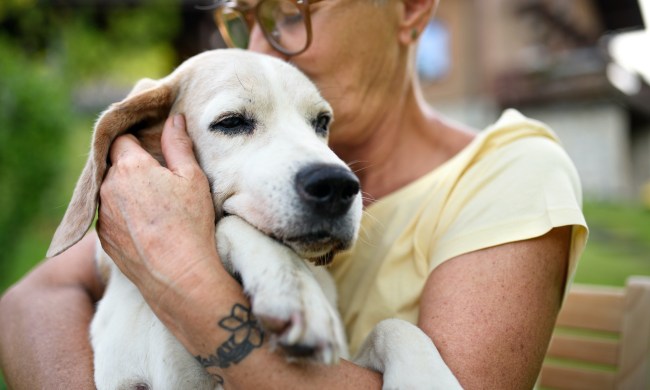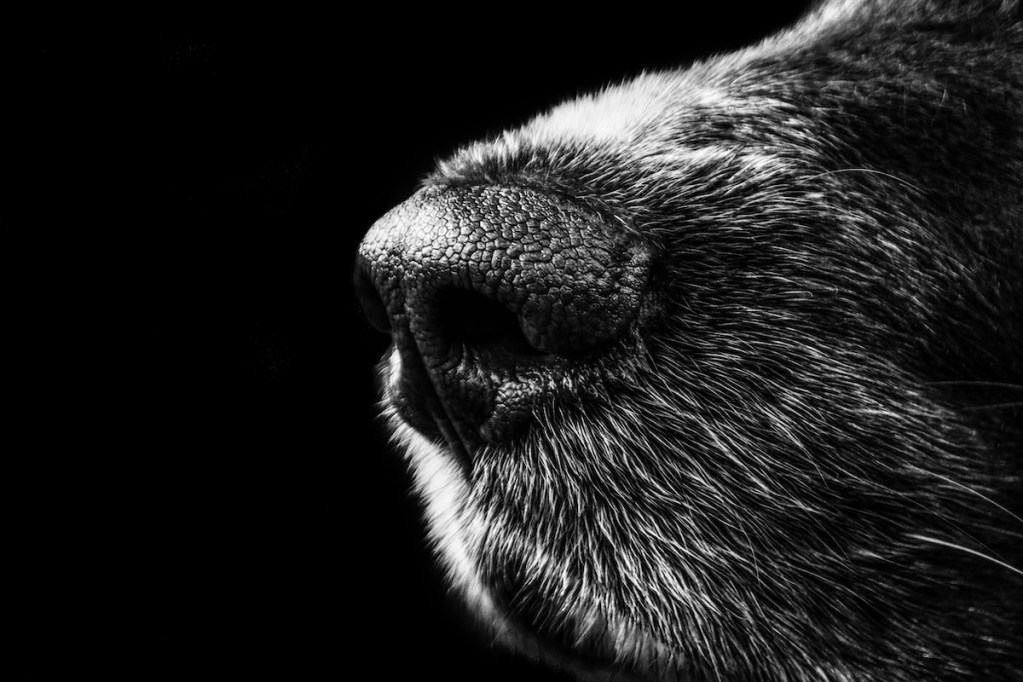
The old cliche that a “dog’s nose knows” is undoubtedly true. Indeed, a dog’s nose tells a tale about a pet’s overall health. Generally, a cold, wet nose is considered a good sign that your dog is feeling well (even if brushing your pet’s snout may be a modestly uncomfortable way to wake up in the morning). Yet, did you ever wonder, “Why do dogs have wet noses?”
Having the answer can make for some fun water cooler discussion. Knowing the reasons behind a dog’s wet nose can also help you understand why a dry nose can be a red flag that something is amiss. Additionally, is it possible for dogs to have a nose that is too wet? We sniffed around and dug up the answers for you.
Why do dogs have wet noses?
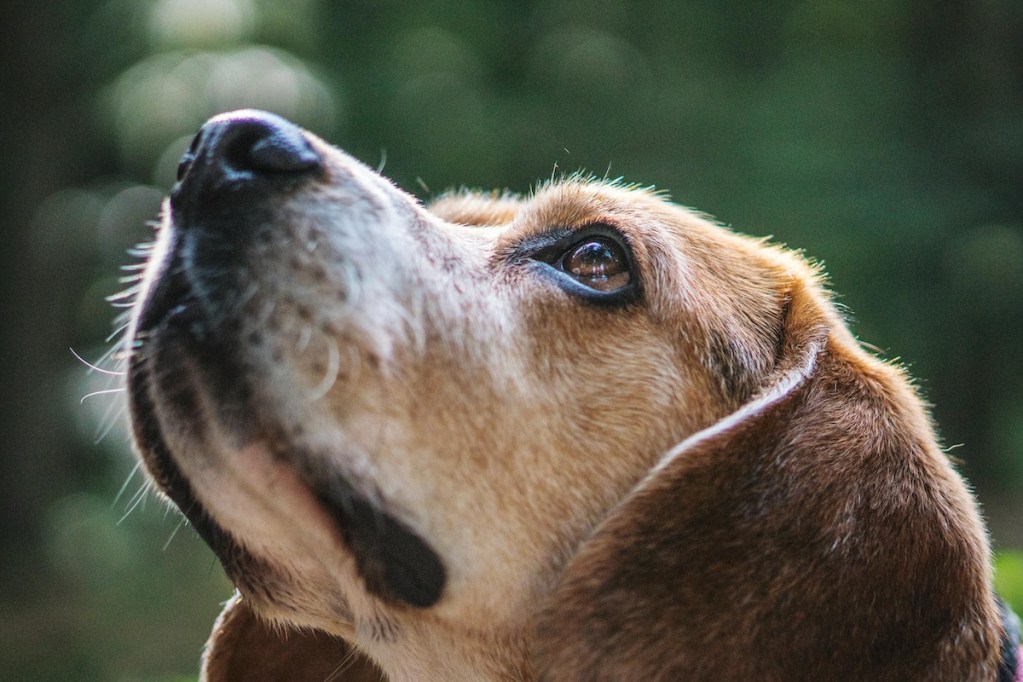
Generally, a dog with a wet nose is healthy. How did a pup’s snout get so wet in the first place, though? A few reasons:
- Mucous: Your dog explores the world through their nose. Mucous isn’t just snot. Instead, dogs secrete a thin layer of mucous through the inner lining of their nose. This mucus keeps the nasal canal wet and clings to your pup’s nose holes, boosting the animal’s ability to absorb scent chemicals. As a result, dogs can smell even better, enabling them to explore the world around them more fully.
- Sweat: Never let ’em see you sweat? Not necessarily, in the dog world. While you may not see your pet dripping in sweat like you do after a long walk, pets perspire through their paws and noses. As with humans, sweat helps regulate body temperature in dogs, keeping them cool as cucumbers even after rousing play sessions or in hot weather.
- Licking: Your dog’s tongue is long enough to reach their nose. Saliva naturally moistens a pet’s nose a bit more than usual.
- Environment: Dogs often walk nose-first, letting their snout lead the way. Since dogs explore the world with their noses, they may sniff around in damp grass, soil, or a giant puddle. The moisture from the environment may make a pet’s nose wetter than normal. Naturally, walking in the rain will also leave a dog’s nose (and body) pretty wet.
How wet is too wet?
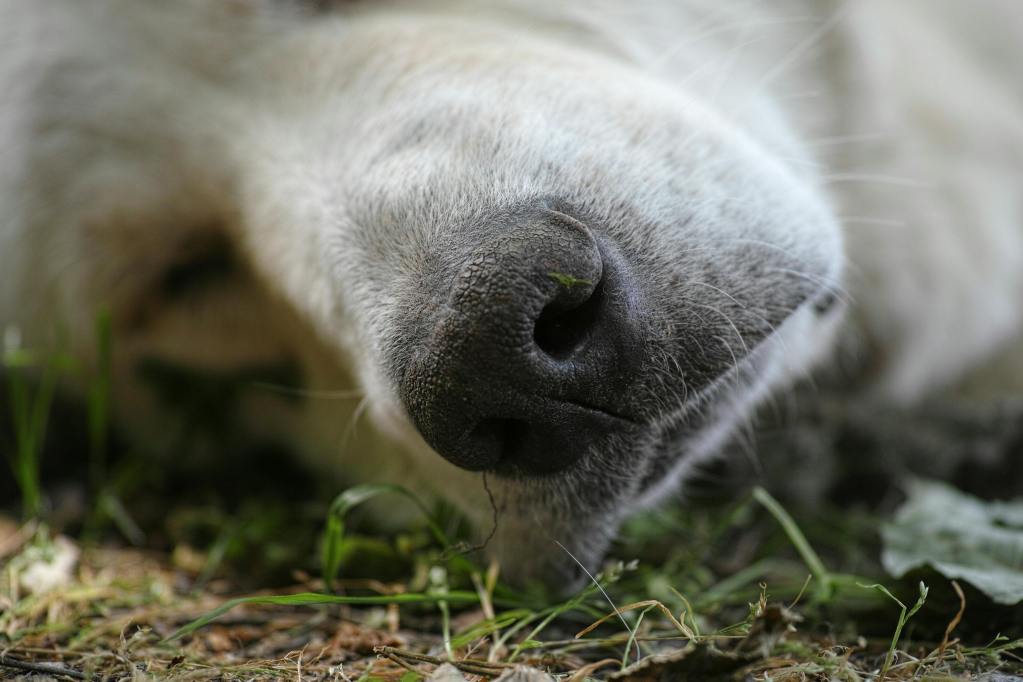
A wet nose is usually a sign all is well. However, there is such a thing as too much of a good thing. As the pet parent, you’ll know your dog’s “normal” nose. If a nose seems much more moist than usual, it could be a red flag that something is up. Specifically, be on the lookout for nasal discharge. Some clear discharge is normal. However, too much of it could indicate the dog is sick.
Additionally, thick, discolored green or yellow mucus may be a sign your dog has a respiratory infection (just like humans). Bloody discharge could indicate your dog has been infected by a tick, is experiencing inflammation, or even has cancer. Your vet can do a workup to get to the bottom of the issue.
Should I be concerned if my dog’s nose is dry?
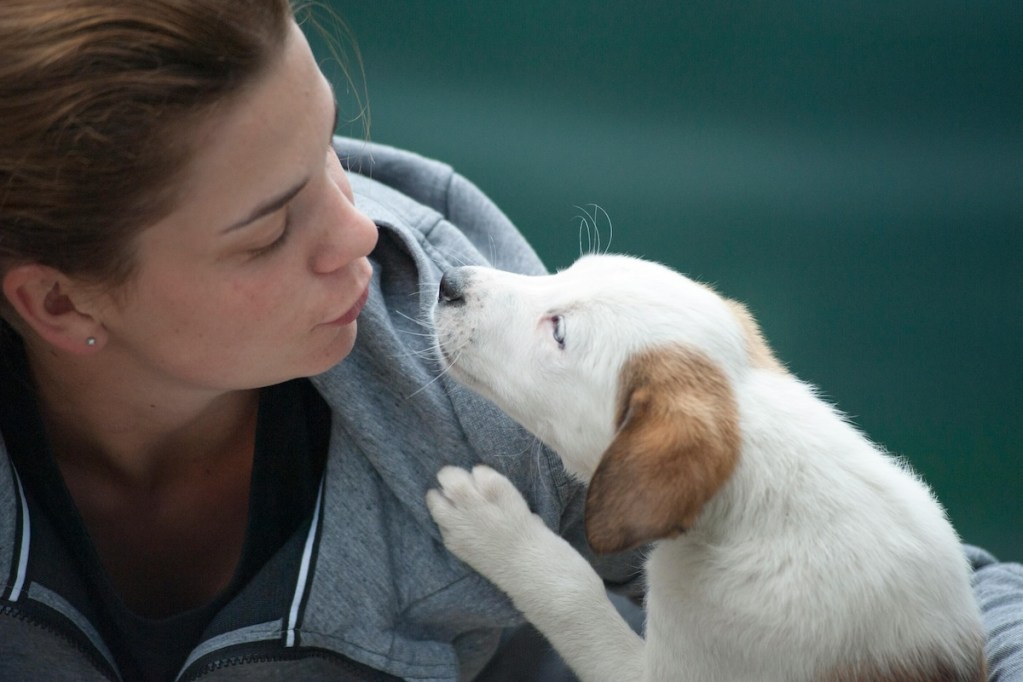
While some dogs are prone to dry noses, a warm, dry snout is certainly a reason to investigate. Warm or cold weather, age, and a temporary respite from nose-licking because of sleep may also make a dog’s nose dryer. However, a dry nose can also indicate an underlying condition.
Pay attention to your dog’s behavior. Are they pooping and peeing as usual? More lethargic? Eating and drinking? If their behavior is also off, a call to the vet is in order. In fact, if in doubt, give your pet’s doctor a ring. If nothing else, you’ll get peace of mind that your dog is A-OK after a checkup.
Final thoughts
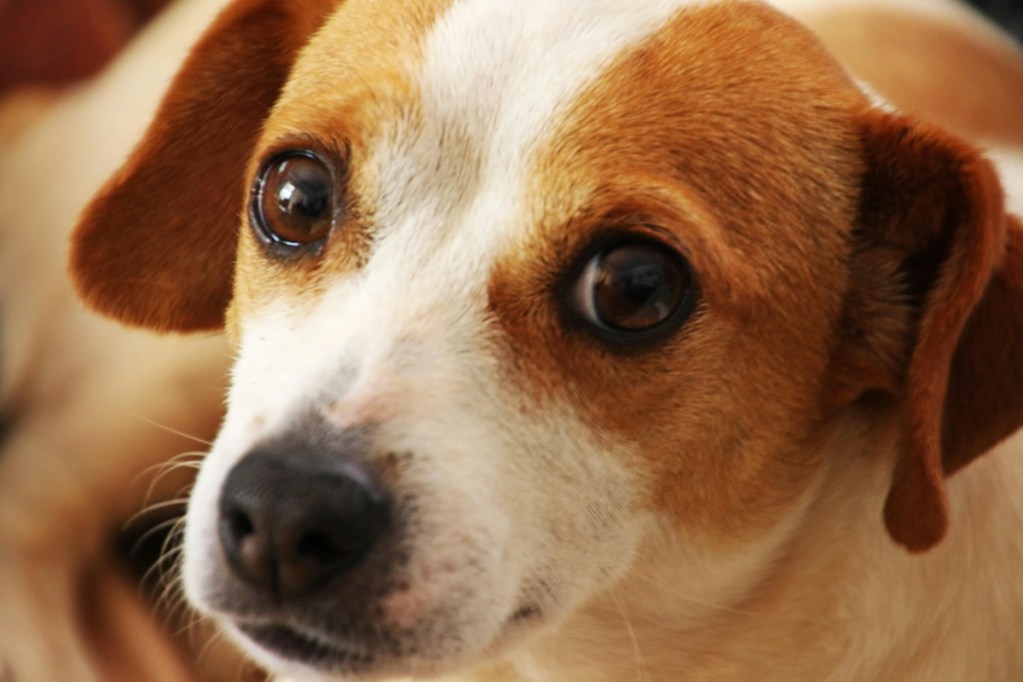
Dogs’ noses are generally naturally wet and cold. A wet, cold nose is a sign your dog is feeling well. Dogs have wet noses because of mucus. Additionally, a pet’s nose may be wetter than usual if they recently sniffed around in a damp area, licked their nose, or are sweating. If a dog’s nose is way wetter than usual, your pet may have a respiratory infection. Blood in nasal discharge is another reason to call the vet.
Additionally, a dry nose isn’t always a red flag. For instance, older dogs and certain breeds naturally have drier noses. However, a dry snout can be a sign of illness. Call your vet if you’re concerned. The veterinarian can do a workup to ensure your dog is healthy and offer treatment options for illnesses.

